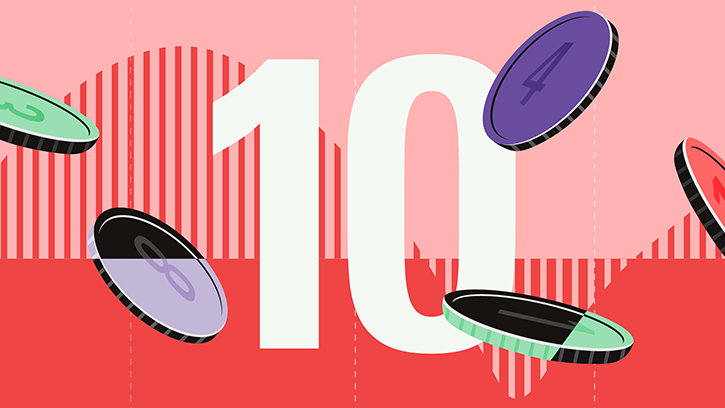
Until recently, the growth investment style had enjoyed several years of market leadership within UK equities and, indeed, globally. However, following the value rebound in late 2020, many UK value fund managers would have entered 2021 in a more optimistic mood. Value’s outperformance versus growth did continue into early 2021, with several prominent value funds enjoying double-digit returns in the first quarter, such as Jupiter UK Special Situations, which has a Morningstar Analyst Rating of Gold on its clean I share class, and Silver-rated (clean L share class) Schroder Recovery.
Nonetheless, the growth cycle hadn’t fully run its course, and the MSCI UK Growth Index outperformed the MSCI UK Value Index over the rest of 2021 from the start of April onwards. In fact, for the year as a whole, the former outperformed the latter by just under 5 percentage points overall.
Interestingly, though, in terms of actively managed UK equity funds, this didn’t mean that growth funds were automatically the best choice for investors in 2021. Of the active funds covered by Morningstar analysts in the UK large-cap equity, UK flex-cap equity, and UK equity income Morningstar Categories, the top five performers in terms of absolute returns can all be described as having value-conscious investment processes.
It is therefore worth digging a little deeper into the headline numbers. One thing that stands out is at the market-cap level. Small-cap value significantly outperformed small-cap growth last year, measured by the MSCI UK Small Value Index’s return of 19.1%, compared with 9.4% for MSCI UK Small Growth.
Clearly, this would have helped value funds with allocations to stocks lower down the market-cap scale. Secondly, sector wise, energy was the top performer in the UK, returning 31% as a surge in demand from coronavirus-pandemic lows pushed oil prices to their highest levels in several years.
This is an area where value funds typically have higher weightings than their growth counterparts. Finally, a number of the best performing value funds benefitted from strong stock selection in an environment that experienced fewer market sentiment headwinds than in previous years, thus allowing their stock picks to shine through.
Value on the Charge
While the picture in terms of style leadership in 2021 was thus somewhat mixed, in 2022 so far, the story has been much less ambiguous, with value clearly outperforming growth across the board. In 2022 to March 16, the MSCI UK Value Index significantly outperformed the MSCI UK Growth Index –by more than 13.5 percentage points – and the picture is repeated further down the market-cap scale when comparing the respective mid- and small-cap indexes. The mid- and small-cap indexes are all in negative territory, but value has indisputably held up better than growth.
The story is similar in terms of the Morningstar-rated active fund universe as defined earlier. While most funds are in negative territory in absolute terms, nearly all the top performers, shown below, typically have value tilts, and all have outperformed the FTSE All-Share Index, itself a value-leaning index, in 2022 to March 16.
Top of that list is the Silver-rated (clean L share class) Schroder Income, which applies a deep-value approach, also used on Schroder Recovery, to equity income investing. Kevin Murphy and Nick Kirrage have overseen the strategy since 2010, but they have managed the value franchise at Schroders since 2006. The process starts with valuation screens designed to help identify potential recovery stocks, defined as companies that have experienced a large share-price underperformance or falling profits.
Deep Value Approach
Detailed fundamental analysis is then undertaken in an effort to avoid exposure to value traps, and research involves a thorough understanding of normalised cash profits and a rigorous balance sheet analysis. While the deep-value approach can lead to a volatile relative performance profile over shorter-term periods (for example, the fund fell significantly in early 2020 owing to the coronavirus-fuelled market losses), investors have typically been well served over the long term.
This echoes a wider point for investors to bear in mind when considering investment in value funds. Value as an investment style can remain out of favour in the market for significantly prolonged periods of time, which can make holding such investments uncomfortable. Value investing therefore requires patience and a long-term mindset to be able to benefit from the potential for longer-term results, and investors should consider whether they can tolerate elevated volatility in the meantime.




























